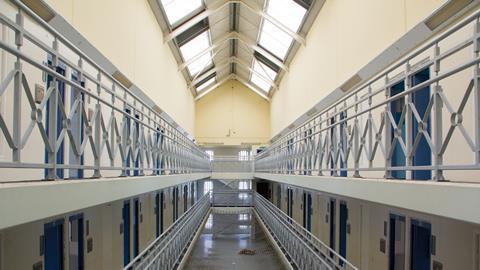Prison lawyers have decided to boycott the next meeting of a Parole Board stakeholder forum over the government’s refusal to increase legal aid fees for prison law work.
The Association of Prison Lawyers and prison law specialists from other organisations have attended Parole Board Users Group meetings for over two decades – devoting ‘countless’ hours of unpaid work to help improve the parole process.
However, it told the Parole Board that the government’s decision not to uplift prison law fees as part of its £135m criminal legal aid reform package ‘has confirmed that our work and contribution is not valued at all by the government/MoJ’.
The letter is signed by the Association of Prison Lawyers, Legal Aid Practitioners Group, Howard League for Penal Reform and Prisoners’ Advice Service.
According to Legal Aid Agency data, the number of providers doing prison law has dropped by 70% between 2012/13 and 2019/20. Sir Christopher Bellamy, who was commissioned by the government to review legal aid fees, said rates should be increased.
The letter says: ‘You may not be aware that prison lawyers who undertake many thousands of parole hearings each year will not receive any increase at all in rates of pay, not even the increases being applied to all other areas of work that fall under the Legal Aid Agency’s crime contract. This is despite the fact that the initial fixed fee scheme introduced in 2011 was subsequently reduced by nearly 10%. Prison law legal aid rates are simply not sustainable.’
‘The amount we can bill is also subject to a fixed fee. The principle behind the fixed fee scheme was that the cases where less work was required would balance those where the fixed fee was exceeded. However, with the increasing complexity of the parole process, most cases will exceed the fixed fee (when calculated on an hourly rate basis) meaning that there is no prospect of a “cross subsidy” with those cases where less work is required.
‘Travel time is not included within the fixed fee structure for travelling to prisons. The government could dramatically increase video-conferencing facilities but has chosen not to.’
The organisations are ‘under no illusion’ that their decision to boycott the next meeting will attract the same level of attention as the criminal bar’s legal aid action.
‘Nevertheless, we will seek to publish and distribute this letter in the hope that it might bring some attention to this issue. There is no rational basis for treating the parole process as less important or specialised than a criminal trial.’
A Ministry of Justice spokesperson said: 'As part of our criminal legal aid reforms, solicitors will receive a 15% fee increase across a range of their work, including that undertaken for work in police stations, magistrates’ courts and youth courts. This follows our recent consultation on plans to invest an extra £135m into criminal legal aid and we will set out further reforms shortly.'
The department added that the independent review spoke of the importance of increased funding at the early stages of the criminal justice system. Ministers were keen to ensure this additional funding is delivered, which meant taking difficult decisions on prioritisation.
This article is now closed for comment.




























6 Readers' comments